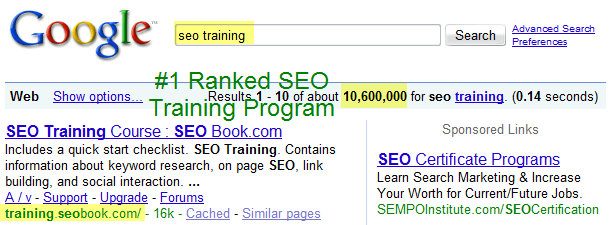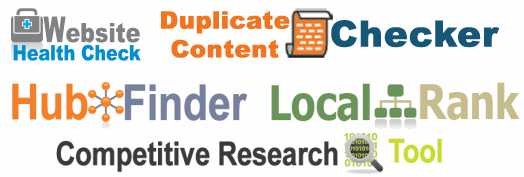Day 11: Make Money Online: The Economic Incentives of 'Easy' Money
Anything that is Successful Eventually Gets Copied
Here are 3 different site designs*

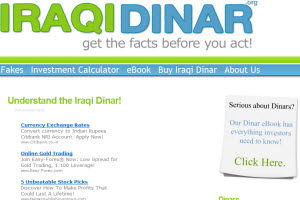
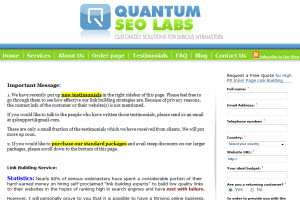
* Well, to be technically correct, we could call that 3 different sites all using roughly the same design. I paid for the design & the others used it without permission.
In January of 2012 we updated our site design to a new one, but the same thing will happen again. Human nature doesn't change quickly!
After we changed over our site design I decided to give the above one away as a free Wordpress theme. I figure if dishonest folks are already benefiting from it then I may as well let everyone else benefit too!
Creativity is Lacking Amongst Theives
There are probably a half-dozen sites in the SEO space which basically stole our website design and/or created some slightly different derivative of it.
Some of our other successful sites suffer from the same fate.
People not only copy design, but they copy keyword strategy, site structure, content, backlink sources, etc.
Thus anything which is truly "easy" and "scalable" is not something you would ever want to go out of your way to highlight.
When you give people ideas of how to apply successful concepts you might think that many people would take your concepts and apply them in unique and original ways to different marketplaces. However creativity involves a greater perceived risk and a willingness to be wrong. So what is *far* more common is people to try to exactly clone whatever you do.
The big problem with that is 2-fold. Most market opportunities are finite, so:
- If people are successful exactly copying what you do then they will cut your income. The only way it makes sense to share it is if you think it would be exceptionally hard to clone and/or if the site was not as successful as you claimed it to be and/or to share a technique that worked in the past, but no longer works.
- Those who are not successful at exactly copying your work will be pissed at you for wasting their time and think you are a liar (it is easier to outsource blame for one's faults than it is to accept responsibility for them...which is why 'weight loss' is a multi-billion Dollar market).
Is Sustained Affiliate Marketing Success Easy?
Sustained success with affiliate marketing is far harder than many people paint it as being because...
- if other affiliates know what you are doing, they may try to clone it, which in turn drives down margins
- merchants you send traffic to often compete in the same markets, have a higher revenue per action & some merchants shave some leads or try to cut you out of the loop in other ways
- Google views you as a competitor and is often biased against your success
The stuff that is hard to clone & built upon significant knowledge and investment tends to be the stuff that stands the test of time.
Hiding Success
If you are successful then you won't win by being obscure. However, if you have something that is producing serious revenues on little to no effort then you are best off keeping market competitors ignorant of your performance until you build strong network effects which provide a lasting competitive advantage. The story of Markus Frind has been told many times. He created Plenty of Fish, an online dating website, and scaled it to making $10 million a year working at home and only using a couple of computers. Part of how he was able to come out of nowhere was that he actually supressed his ratings on traffic monitoring services until his site was exceptionally powerful.
I am the first major site owner to ever use Counter Intelligence, and in competitive markets I believe it is a MUST. To stop alexa simply don't allow any user with "alexa" in the useragent visit your site or signup. You can block most other tracking systems but i'll let you figure out how to do that
When he was first gaining momentum he was secretive. But once his site was in a powerful position that would be hard to compete against he shared his story in the media to further build the trust and authority of his website.
The more transparent you are the greater the likelihood of someone copying your strategy. And they don't have to beat you entirely to still cost you a lot of money. Consider that:
- if you are making good money then somewhere there is someone who is less successful than you are in an area where the living standards are lower, and they are willing to do more for less
- a large volume of searches are longtail keywords, so if you share earnings information you may inspire dozens of competing sites which chip away at the longtail. individually each site might only take one or two percent of your site's income, but by the time you add up a dozen of them it can be quite substantial
- if you are not putting much effort into a project and someone else takes a similar set of knowledge along with your data & pours themselves passionately into the project then eventually they will be able to beat you.
- the same is true for older and more trusted authoritative websites that are not beating you because they simply missed your area.
- the same is true for people who are sitting on large sums of capital who are seeking returns by any means possible.
- the same is true for people who are willing to compete aggressively with a higher risk profile than you are willing to use
Why do People Share Specific Revenue Numbers?
In spite of all the above information, it is true that you can get a lot of free actionable advice online. That leads one to ask why people choose to share. I think there are a variety of motivations
- being arrogant: some people value their own contributions more than the market does & do not realize that by exposing them they are setting themselves up for a fall.
- being naive: until someone screws you over it can be a bit hard to realize how easy it is & how often it is done.
- wanting to help: some people are so passionate about helping others that they don't mind if it costs them money to do so. And if a person is a bit screwed up & does not come from a strong family background they might give away a lot for an extended period of time in part just trying to reach out & create connections.
- hidden agenda: some affiliate programs are 2-tier (so if you make any conversions then you get paid an affiliate commission AND the person who referred you gets paid a commission).
- I have seen many blog posts highlighting how easy certain affiliate programs are (which smelled a bit fishy).
- Upon further inspection, roughly 100% of the time there is typically ownership in the other network, payment for exposure, or a 2-tier affiliate program behind most any "easy & anyone can make thousands" post.
- technique died: if I tell you what I did last year (but it is no longer working) then it doesn't cost me any money to share that tip.
- ShoeMoney offered a killer FaceBook ads video & was willing to give away his exact game plan because FaceBook was no longer receptive to it.
- That said, history often rhymes, so even if a particular network kills a certain model, you can bet that the model will still be applicable on other new networks. This is where having a touch of creativity and not being too literal can help you make a lot of money following what has already been proven to work in the past.
- technique never worked in the first place: some marketers come up with sales letters ideas & then create a "product" around that topic.
- They are often priced at $1,997 & it is simply a ponzi scheme of selling hype to the greater fool.
- Some programs are priced at $1.99 for shipping and handling & then push folks into reverse billing fraud, charging their credit cards monthly for products they never ordered. Some folks using boiler room sales techniques and/or such reverse billing schemes have snagged hundreds of millions of Dollars.
- The whole reason we use Paypal is so consumers who may have been screwed by scammers using reverse billing fraud know they control any payment to us on their end & that we are not like those folks.
What Numbers Are Being Shared?
One last reason people are willing to share numbers is that they often lack context. For example, if I spend $800,000 buying AdWords traffic and then make $820,000 in affiliate commissions I could say "look at how I made nearly a million in affiliate commissions last year." Without the cost of revenues, just seeing a number out of context has little value. And let's say that the affiliate payout was ~ 8% of sales. Well then the same above example could be about how I sold "over $10 million Dollars" in products last year.
$10 million sounds far sexier than $20,000!
Someone who is making 5% on pushing big numbers might not be earning that much, but they can still make it sound like a lot. The same thing is true with retail. It is really easy to sell a million Dollars worth of product at a 5% margin, but then saying you make $4,000 a month isn't quite as impressive as saying you made a million Dollars. A lot of folks are all about "selling the dream" or "selling the lifestyle."
I roasted one sell a dream internet marketer after I caught them leaving a variety of hate comments on my site using various pseudonyms. When I did that they sent me an email complaining about feeling like I was ripping them down for all they worked so hard for 16 hours a day for years. Meanwhile their sales letter selling their get rich quick software made it sound like all they did was drink beer and go fishing while the money rolled in. Many internet marketers lie to make a sale. And for every honest person there is out there, there is likely dozens of parasitic offers.
You have to dig deeper into the numbers & even the sales psychology to see if the opportunity is real, or if it is just another layer of hype. The best products and services won't use hard close sales approaches because those don't attract the best customers.
Understand the intent of the person sharing the numbers...try to align that person's current & past behaviors with the above profiles. Are they being arrogant, naive, helpful, or selling some garbage that doesn't work? Over 95% of time they fall into that 4th category.
In general, when in doubt, here is a good post on how to judge the authenticity of internet marketing advice.
What Numbers Are You Accidentally Sharing?
Out of a lack of interest in getting sued, I can't say who the following email was from beyond saying it was from one of the top affiliate networks that you often see promoted on affiliate blogs.
I see that you’re running adsense banners and in return giving your [niche] leads away to other affiliates. I’ve had several affiliates switch over to our [niche] offer [program name] and see a higher eCPM. We’re in the process of adding some new partners to the offer. I’d like to get you setup with a [our affiliate network] account and see if we can get access to the offer for you
[offer_name]
[associated_URL]
Best Regards,
[name]
[position]
[company_name]
AIM/Skype/Yahoo: [username]
Email: [email]
[credibility message, as though the email didn't harm their credibility beyond repair]
In other words, the above affiliate network was suggesting that I cut out their own affiliates. So affiliates take all the risk to find out what works & where they should be bidding, and then to reward them for their hard work the scummy affiliate network tries to cut them out of the loop. Some of the affiliate networks not only spy on affiliates, but also shave payouts...so you make 20 conversions and they pay you for 19 of them. Further, since the affiliate network is the source of the deal, they have fatter margins than you do. So if they can track where your traffic comes from then they can outbid you and drive you out of the marketplace.
Now not all affiliate networks are really scummy, but those which are pushing fraudulent products (like scammy weight loss stuff & items which sneakily force people into hidden recurring payments billed to their cell phone) are scamming consumers. If a network is built on scamming consumers then it goes without saying they would likely scam their affiliates as well.
Some free SEO tools are also built around spying & aggregating data, and when some people go to sell their sites they reveal far too much information publicly (if a company has enough money to buy your website then they probably have enough money to use your data to compete against you as well). Some link brokers (like Patrick Gavin) are also large web publishers as well. So if you hand over your link budget to people like him then you can expect that data to be used accordingly to his advantage.
Should You be Paranoid?
Even if 95% of webmasters are honest, the scummy 5% can cost you a lot of money if you are too open with sharing your exact numbers publicly. This is especially true if you have a new site that would be fairly easy for anyone to copy.
I share a lot of case studies here (in terms of sharing new tips and techniques and the strategies we are profitably deploying), but I rarely share the exact site + the precise revenue numbers + case study all at the exact time. If I did that it would create too much demand for the idea & would saturate the market, lowering returns for everyone targeting those keywords (as an idea that is profitable with x competitors might not be profitable with 100 new competitors).
And, in some cases, those who fail to succeed are also willing to try to knock others down to achieve their goals
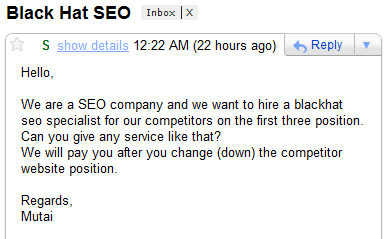
I am not suggesting that anyone should be particularly paranoid or aim to be obscure. Rather, it doesn't make much sense to share a specific case study (with revenue numbers) unless you are sharing something that already stopped working OR you believe that sharing it will create more profit potential than the risk of loss. An example of sharing working to a benefit is when there is a major acquisition that will draw press, or if you already have large network effects built in and are getting your story syndicated throughout mainstream media.
People who have websites that are any of the following have limited risk in sharing data:
- low earning
- high effort
- significant barriers to entry (like specialized training, required certificaitons, offline product sourcing expertise, or an existing local business location)
However, if your site is doing lead generation, affiliate marketing, or contextual ad sales then it can be quite easy for others to want to clone it if you tell them that there is lots of money to be made there and the money is easy to make.
Even if you don't reveal anything about your site publicly you still should push to reinvest into building its authority if it is earning good money.
Why? That will make the business more stable. Almost any form of ad-driven monetization leaks data back to other ad networks and advertisers - especially Google, which operates in and/or invests in the following verticals:
- travel (flights + hotel rooms, etc.)
- financial offers (loans, credit cards, etc.)
- ecommerce + commerce (product search, Google Checkout, Google Wallet)
- productivity & office software (Google Docs & Spreadsheets, Google Apps)
- games & other software (iGoogle, Google Chrome store, etc.)
- media (YouTube, Vevo, etc.)
- coupons & discount offers (Google Offers, investment in WhaleShark Media)
- local (Android, Google Maps, localizing search results, 97% mobile search marketshare in the US)
- affiliate marketing (Google affiliate network & wherever affiliate intersects wtih the above markets)
Building a strong defensible position means that you not only grow your revenue, but as you build a brand you make it cheaper for someone to buy you out than to compete against you.
Cheers,
Aaron Wall
Want to Join the #1 Ranked SEO Training Program?
Join Today
Subscribe today to gain immediate access.
What You Get When You Join
You are only 1 step away from having access to all kinds of SEO goodies, including:
- the top ranked online SEO training program, which includes over 100 training modules, has been well referenced around the world, & is currently being used as course material for accredited college courses in internet marketing.
- the leading SEO community forums where you can interact directly with some of the sharpest minds in search & get your questions answered.
- many high-quality exclusive SEO tools including our Website Health Check Tool, Competitive Research Tool, Duplicate Content Checker, Hub Finder, and the LocalRank tool
Join a True Community of SEO Experts
I've been a paying member since day one. It's been the best $2000 I've ever spent on SEO, SEM, Social Media and general business information.
Community members have very meaningful online success in difficult niches. These personalities combine to produce quite frankly a vital resource for all serious online businesses. - Liam Delahunty
Killer SEO Tools!
Join Today
Subscribe today to gain immediate access.
Need More Information?
Want to learn more? Check out the member tour.
Gain a Competitive Advantage Today
Your top competitors have been investing into their marketing strategy for years.
Now you can know exactly where they rank, pick off their best keywords, and track new opportunities as they emerge.
Explore the ranking profile of your competitors in Google and Bing today using SEMrush.
Enter a competing URL below to quickly gain access to their organic & paid search performance history - for free.
See where they rank & beat them!


